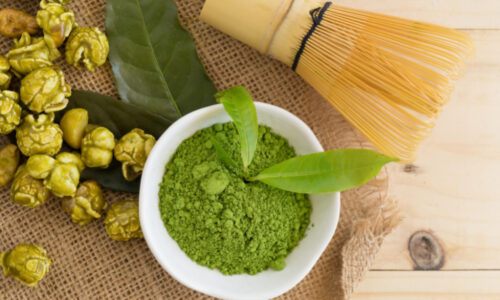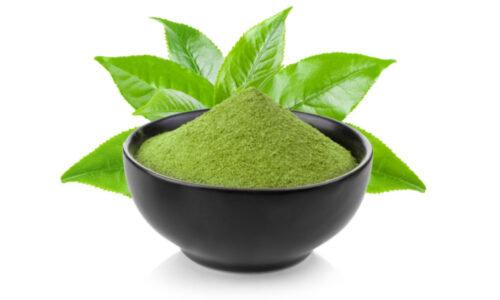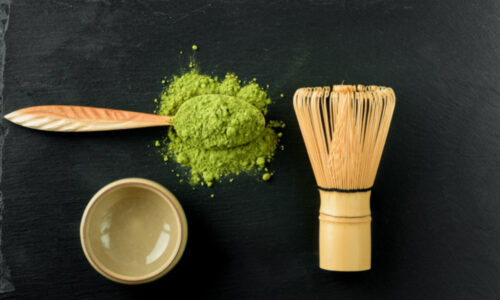The world of tea is intriguing, with many fascinating facets to explore. Tea has been a popular drink in China for centuries, and the British started drinking it in the 1700s, which led to its popularity worldwide today.
Tea has become one of the most popular drinks in the world. It’s not only flavourful and refreshing but also offers various health benefits. It can reduce stress levels, boost your immune system, improve memory function, and prevent certain diseases like cancer.
What about L-theanine? You might not know that tea contains an amino acid called L-Theanine. It has been shown to have some pretty amazing effects on mental health. So how much L-theanine in tea? Read on to know more about L-theanine.
What is tea? Why is it so popular?
Tea is the most popular drink in the world after water. It has been drunk for almost 5000 years, and there are more than 4000 varieties of tea. Tea contains caffeine and other chemicals that cause a sense of alertness when consumed. Most people think it tastes great too.
Most tea comes from one species, Camellia Sinensis, but different types are made by altering how the leaves are processed. Green tea is made from unfermented leaves, while black tea is from fermented leaves. Oolong tea is a type of black tea that is partially fermented. To stop fermentation, white tea is from buds and young leaves steamed or fired very lightly.
It has become popular because it is a very healthy drink and an alternative to coffee. It contains many antioxidants and is lower in caffeine than most other drinks. It has been shown to help blood circulation, weight loss and concentration levels.
It has become a drink that can be enjoyed anytime and is perfect for relaxing with friends or family. So why not give it a try? You might just get hooked and never look back.
L-Theanine in Tea
Looking at l-theanine in tea is an exciting topic considering the brain processes it affects. When consumed, it produces calming effects on the mind, allowing you to think clearly without feeling drowsy.
The mechanism of action of l-theanine is unknown, although research suggests that it binds to glutamate receptors in the brain. It inhibits the production of excitatory neurotransmitters, which cause feelings of anxiety and stress. L-Theanine also increases alpha waves in the brain, producing a state of calmness.
As a result, drinking tea might help you focus on your work or just unwind after a long day at work. It may also help to counteract the effects of caffeine, resulting in feelings of anxiety and tension. So if you’re searching for an excuse to drink more tea, this is it. L-theanine has many health benefits and is the perfect excuse to enjoy a cup of tea.
How much L-Theanine in Tea?
The amount of L-theanine in tea varies significantly depending on the tea consumed. The quality and brewing technique also plays a role.
How much L-theanine in Black Tea?
The concentration of l-theanine in black tea leaves can yield 8 to 25mg per cup. Black tea is fully oxidised and fermented, which creates the pronounced cybersecurity flavour. In addition, it contains high levels of caffeine compared to other tea leaves, another contributing factor to its higher concentration of l-theanine.
How much L-Theanine in Green Tea?
Green tea has less caffeine and a higher level of antioxidants when compared to black tea. The amount of l-theanine in green tea is usually lower than in black tea, averaging around 4-8mg per cup, but this is still enough to affect the brain. However, some high-quality green teas contain up to 25mg of l-theanine.
How much L-Theanine in Matcha Green Tea?
Matcha green tea is a type of green tea ground into a fine powder. It is from the same leaves as regular green tea. The difference is that the tea leaves are grown in the shade, which causes them to produce more l-theanine.
The stems and veins are removed before grinding, resulting in a fine powder and a more robust flavour. It is crucial to make sure you purchase high-quality matcha green tea powder. Otherwise, the l-theanine content will be lower than expected.
The l-theanine content in matcha is nearly double that of regular green tea. It can be as high as 46mg per cup.
How much L-Theanine in White Tea?
White tea is made from buds and young leaves that have been steamed or lightly cooked to dry them out before fermentation begins. It’s lower in l-theanine than black teas but still has plenty of antioxidants, thanks to its high humidity level during production.
How much L-Theanine in Oolong Tea?
Oolong tea is partially fermented black tea with the lowest amount of caffeine out of all teas other than white tea. The l-theanine content can vary depending on fermentation levels and the quality of the tea, but there are similar to white tea.
How much L-theanine in Chamomile Tea?
Chamomile tea is a beverage prepared from camomile blossoms. It can be consumed hot or cold depending on the weather. The l-theanine concentration in chamomile tea ranges from 2mg to 12mg per cup, lower than other tea varieties. Chamomile tea’s benefit is that it contains no caffeine, making it an excellent nightcap before bedtime.
Brewing time and temperature
The longer you brew a tea, the more l-theanine it will release. The same goes for the temperature; the hotter you brew your tea, the more l-theanine it will release. Thus, black tea is brewed for 3-5 minutes, while green tea is for 1-2 minutes.
Brewing time and temperature also affect the caffeine content of a tea. The longer you brew a tea, the more caffeine it will release. The same goes for the temperature; the hotter you brew your tea, the more caffeine it will release.
Adding milk to tea
Adding milk to tea can decrease the amount of l-theanine absorbed by the body. The proteins in milk can bind to the l-theanine, preventing it from being absorbed. Drinking tea without milk is therefore recommended.
Caffeine vs L-Theanine
Tea is a drink with many benefits, both for the body and mind. While coffee is known to stimulate the mind and make you feel more alert, l-theanine has a calming effect. The l-theanine content in different types of tea varies, but black tea uniquely contains caffeine and l-theanine.
If you want to reduce the amount of caffeine in your diet, switching to green tea is an excellent place to start as it contains less caffeine and more l-theanine.
Combining L-Theanine with Caffeine
Combining l-theanine with caffeine might be helpful if you search for a more powerful energy boost. L-Theanine has been found to improve attention and to learn in some studies. As a result, l-theanine balances out the adverse effects of caffeine, such as anxiety and agitation.
Tea, such as matcha green tea, which has caffeine and l-theanine in proportion, is the ideal blend of L-theanine and caffeine. The l-theanine will assist in minimising the adverse effects of caffeine, such as tremors, anxiety, and increased heart rate. The two chemicals also enhance mood, reduce stress, and boost mental awareness.
L-Theanine to caffeine ratio
The l-theanine to caffeine ratio is about 1:2, which means that for every molecule of caffeine, there are two molecules of l-theanine. Black tea is thus able to both stimulate and relax the mind simultaneously.
Whilst the l-theanine to caffeine ratio for green tea is lower. It is still enough to create a state of relaxation. The average l-theanine to caffeine ratio for most other types of tea is 1:4 or 1:5.
It’s important to note that the quality of the tea can also affect these ratios. For example, matcha green tea has a much higher concentration of l-theanine than other types of green tea.
So, the next time you’re feeling a little stressed, reach for a cup of tea instead of coffee. Not only will you get the benefits of caffeine, but you’ll also get the benefits of l-theanine which can help to reduce stress levels and promote relaxation.
Wrap Up
Tea is a fascinating drink with many benefits. It’s not only delicious and refreshing but also offers health benefits like reducing stress, boosting the immune system, improving memory function, and preventing certain diseases such as cancer. You might not know about tea because it contains an amino acid called L-Theanine, which can help improve your mood or reduce anxiety levels without causing any side effects associated with caffeine consumption.
If you want to take full advantage of all these perks of drinking tea regularly, we recommend trying tea over coffee, as tea contains a lower dose of caffeine and a higher amount of L-Theanine. Additionally, if you’re looking for an energy boost, try combining tea with caffeine, as this can positively affect mood, stress levels, and mental awareness.
So sit back, relax, and enjoy a cup of your favourite tea!


